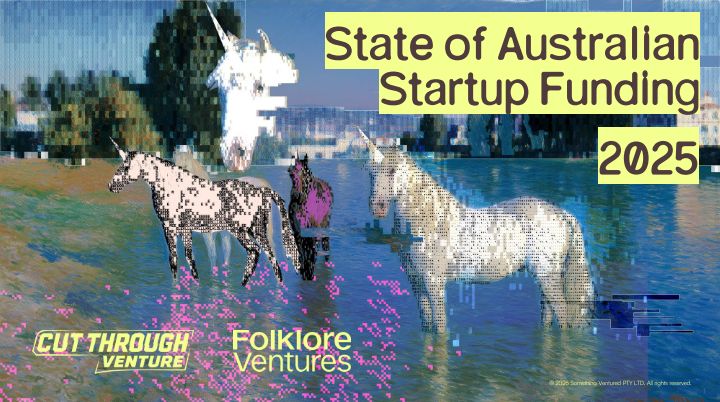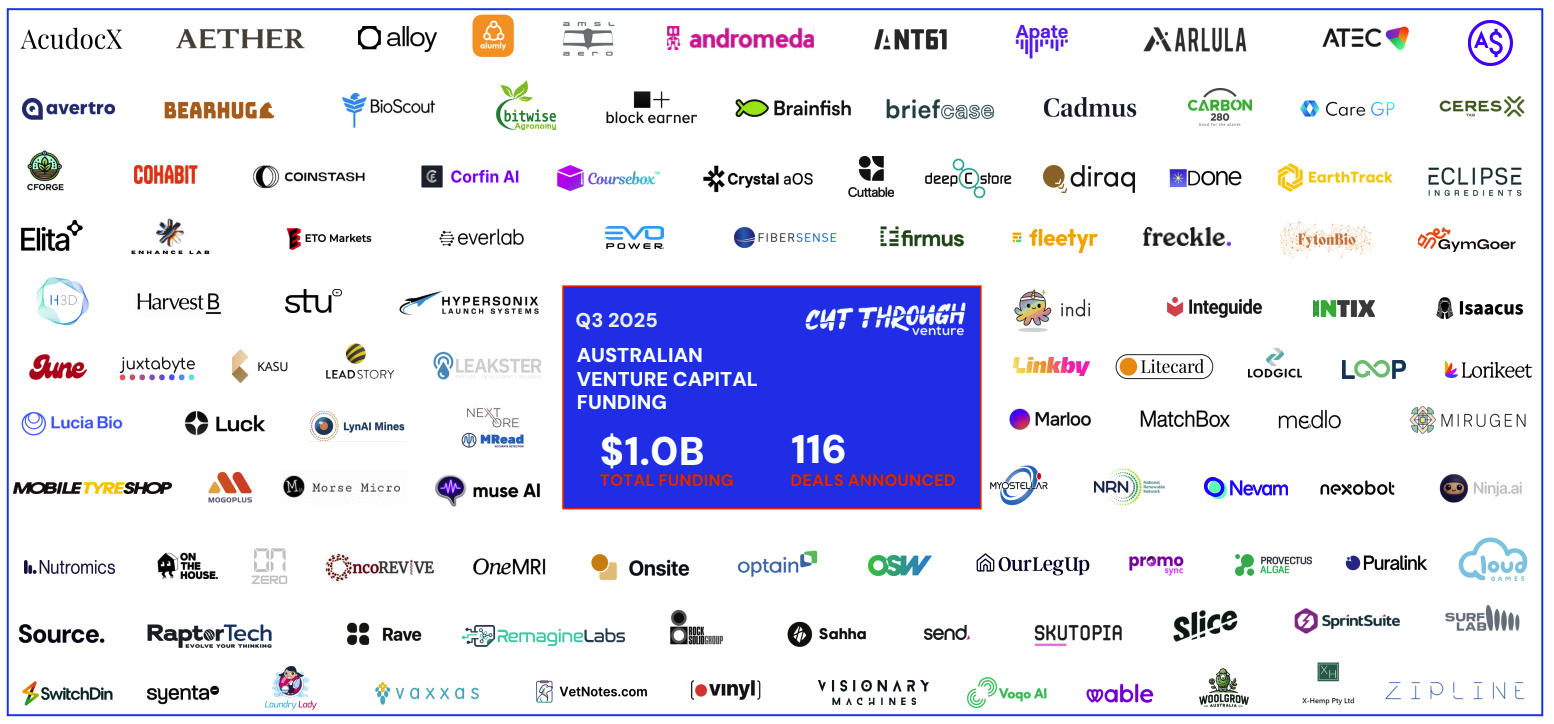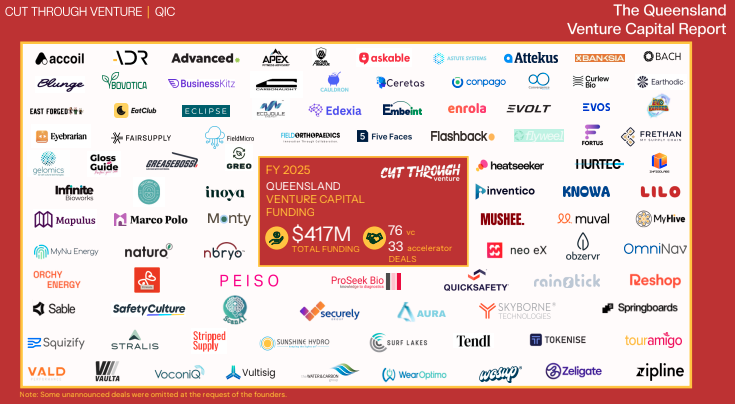
Welcome to the August review of Cut Through Venture. A special welcome to the 293 new subscribers who joined in August. Thanks to those who referred them – you're the best. Farewell to the 12 who unsubscribed; it was good while it lasted.
Cut Through Venture is a little late this month as we're celebrating a holiday week here in the US.
Also late, wishing a happy Father's Day to all the dads. Special shout out to my dad and superfan, Ian, as well as my father-in-law, Paul. Thanks for everything. I've been more contemplative about Father's Day this year because I become a dad next month! Tips are welcome.
September asks: 1) Invite two people stuck in lockdown to Cut Through Venture here.2) Many funds now submit their funded deals, so I don't miss them. You can do the same via this form, or by returning this spreadsheet.
Ok, onward...
Forwarded this email? Subscribe here!
Refer a Friend
The mega-deals go M.I.A


Following the dizzying heights reached in July, total venture dollars slipped back in line with 2021's monthly average. The lower funding figure was due entirely to an absence of mega-deals that we've grown accustomed to this year. One or two mega-deals would have made August the second strongest month on record. There were more venture (non-crowdfunded) deals funded in August than in any other month ever.
The top 20% of deals accounted for 73% of total deal volume. Three startups raised $50M or more, 13 raised more than $10M, and 26 raised more than $5M. After a roaring July, the crowdfunding platforms were quiet – though there's a backlog of live campaigns set to close over the coming months.

For the first time this year, Consumer Products led the charge from a dollars-funded perspective, receiving 23% of total funding. Health Tech, Fintech and Hardware stood out from a deal count perspective. These segments accounted for just shy of half of all the deals funded.

Following QLD's breakout run in July, the universe returned to normal; NSW once again led from a dollars and deal count perspective, accounting for more than 50% of total funding and all deals. The East Coast states accounted for all but one of the Australian deals reported. New Zealand deals funded ran in line with the monthly average for 2021.


Series-A and Series-B rounds stepped into the void left by the absent mega-rounds. These early-ish deals made up 73% of total funding. Only a handful of Covid-era founded startups raised capital, and even fewer companies older than ten years raised in August. 60% of total funds flowed to startups aged between four and seven.



August again reminded us that most founders begin bootstrapped or backed by supportive friends and family. The average Seed raising startup was more than three years old. The average Series-A or B funded startup was more than five.

62 deals for $549M!

Listen to the customer. Operata, whose cloud call centre solution saw explosive growth as call centres went remote during the pandemic, raised a seed round from top local funds and high profile angels. The founders of Dovetail, who previously worked at Atlassian, tapped their ex-boss's fund Grok Ventures and other leading investors and tech executives to centralise customer knowledge to empower customer-centric decision making. Pendula raised from EVP and Moelis to drive U.S. expansion of their multi-channel customer communication platform.
Splashup beat out more than 80 startups for a $150K investment from x15ventures. Splashup's customer-centric e-commerce solution aims to put the right products in front of the right customers at the right time.
To market, to market. Omnyfy raised from local investors to continue to scale its marketplace-in-a-box solution which allows businesses to quickly launch multi-vendor e-commerce marketplaces without the headache of building it themselves. After six years of bootstrapping, unwanted excess food marketplace Yume sold a 20% stake to waste giant Suez. Foodbomb and Ordermentum, which make wholesale food and beverage procurement less painful for bars and restaurants, raised from a stacked bench of well-known local investors. Both startups will play a key role in ensuring that bars and restaurants survive and thrive as the major cities begin to re-open.
In the "don't knock it till you try it" category is Send, which offers 15-minute grocery delivery. A plethora of super-fast delivery startups have popped up globally, and I'm a customer of several in NYC. If executed well, the customer experience sits somewhere between spooky and magical. It remains to be seen whether it will work in Australia (or if the economics stack up anywhere, frankly). But, if you happen to be in one of Send's two pilot markets, Alexandria in Sydney and Collingwood in Melbourne, I highly recommend setting the iPhone countdown timer and putting the Send delivery person through their paces. Fantastic lockdown activity for the whole family.
Learn by doing. Both EntryLevel and Forage received funding to help power their respective virtual work experience platforms. The platforms let job seekers participate in virtual work experiences designed and led by experienced professionals from top companies. Hospitality jobs and training platform Barcats raised amid the ongoing disruption to the sector caused by pandemic lockdowns. The platform has suspended its subscription fees for workers in NSW and VIC, and is focussing on upskilling its customer base so they're ready for when restrictions lift.
Six-year-old Hireup raised a large Series-A round from Seek Investments to support the national expansion of its platform that helps people with disabilities find, hire, and manage support workers. Love it. T-Shirt Ventures also raised to support their Provider's Choice and HeyHubble brands, which also aim to make the lives of National Disability Insurance Scheme participants easier. Meanwhile, N.Z. startup Komodo raised a Seed round to scale its mental health platform for schools.
Good bedside manner. Oscer, which helps aspiring doctors practice their clinical reasoning skills by interacting with AI-powered virtual patients, raised a Seed round. The funds will support the development of a new diagnostic support tool for clinicians to get real-time AI-powered second opinions. ResusRight also raised a Seed to support the roll-out of its paediatric medical device, which increases the success rate of resuscitating babies who struggle to begin breathing after birth. VidApp, which powers many of the world's most popular health and well-being streaming apps, raised a Seed round to make us all just a little more zen.
The Big Medium Five

In one end and out the other.v2 Food cemented itself as Australia's best-funded alt protein startup, as it positions itself for expansion into Europe. Who Gives a Crap (surely) took out the same title for the most well-funded toilet paper startup. Who Gives a Crap also happens to live the mantra of 'doing well by doing good'. They donate 50% of their profits to help build toilets and improve sanitation in the developing world. Not crap at all.
Keeping the future safe. Penten delivers a broad set of cybersecurity hardware and software solutions to defence and government clients. My guess would be you've probably never heard of Penten, which means that they're doing a good job.
Do good work.Hireup makes it easier for people with disabilities to find, hire and manage a team of support workers. The support workers on the platform are employed by Hireup, and they're given a range of resources to ensure they can provide the best support possible. Forage works with top employers to develop virtual work experience programs for prospective employees to help ease that awkward 'I have no clue what I'm doing' phase we've all experienced in a new job.
The Founders
Funds flowing to female-founded startups dipped well below the 2021 monthly average. Just eight of the funded startups had at least one female founder. A silver lining was that the average round sizes achieved by diverse teams were 33% higher than all-male teams. Solo and two-person founding teams led the charge in terms of total deal funded.


The Funders
Excluding crowdfunding participants, more than 173 unique investors were reported as part of August's venture funding activity. A record!
The most active investors were locals Blackbird (EntryLevel, Dovetail, Forage, Fable, Oscer), Investible (Barcats, LIGR, Programa, Quantum Brilliance), Airtree (Huddle Insurance, LawVu, Open, Regrow Ag), Icehouse (VidApp, Crimson Education, Komodo, Litmaps), Moelis (DGtek, Pendula, Quantum Brilliance), EVP (Foodbomb, Pendula, Programa), and Artesian (Nutromics, Pi.Exchange, Sicona).
The international funds were far quieter than usual... let's put that down to it being peak summer in the Hamptons.
That's it. Have a fantastic week.– Chris





